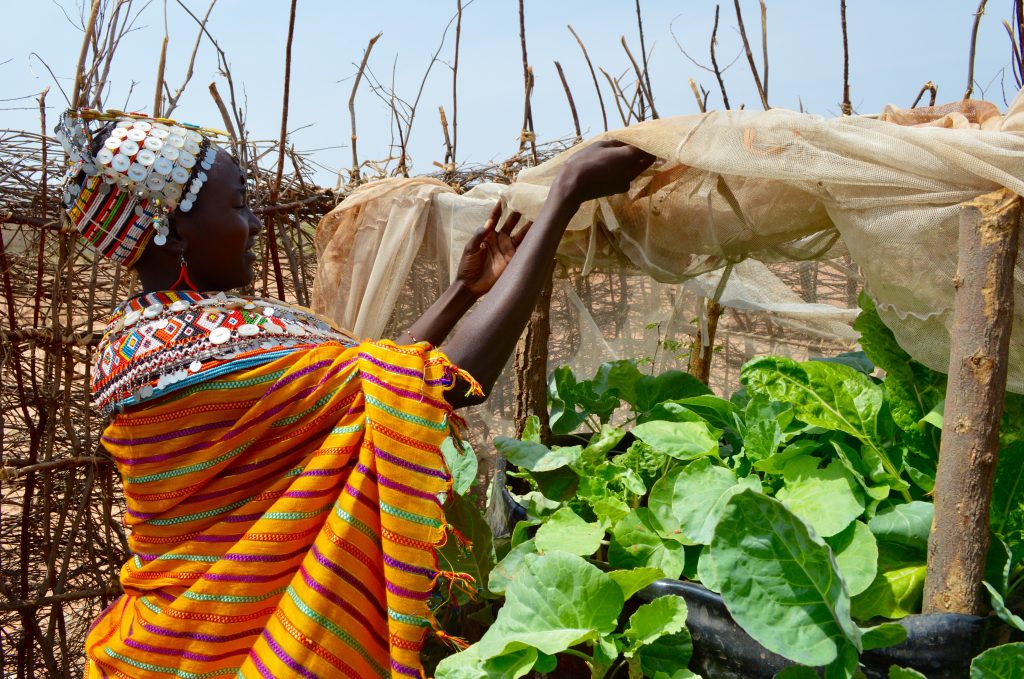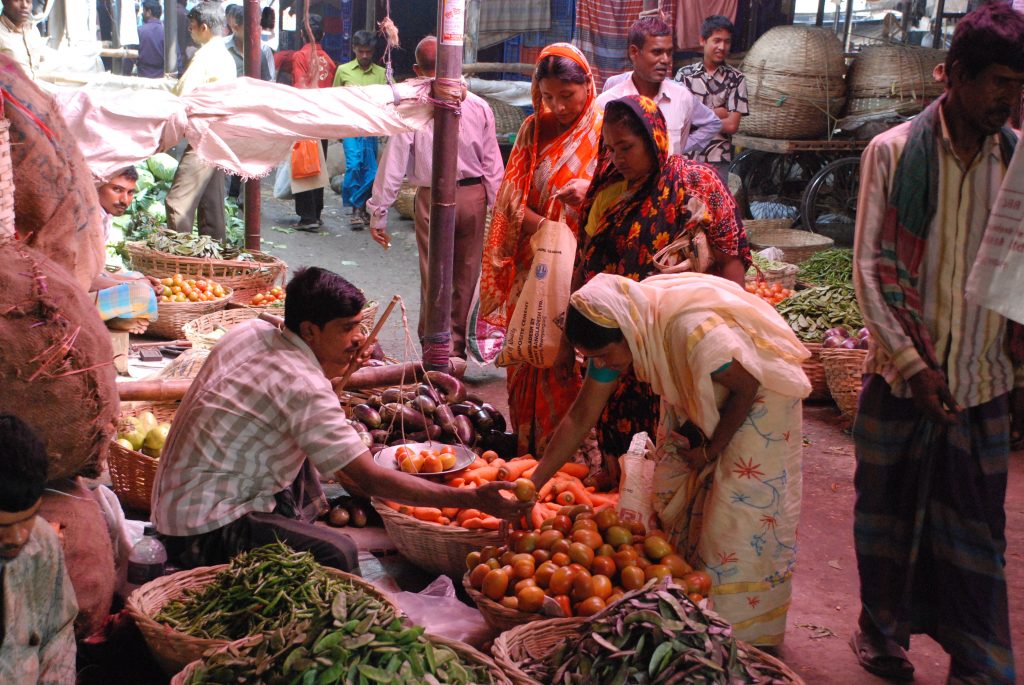The Private Sector: How Can It Help End Malnutrition by 2030?
This post was written by Steve Godfrey, Chief Investment Officer, and Beatrice Montesi, External Relations Associate, Global Alliance for Improved Nutrition (GAIN)
Originally posted on Inclusive Business Hub.

The Sustainable Development Goals (SDGs) set a new course for nutrition and human development. Through SDG2, for the first time, the international community is committed to “ending malnutrition in all its forms.” This means that we have the opportunity to improve the health and lives of an estimated 800 million people who remain undernourished and of the billions of people who suffer from micronutrient deficiencies, or from overweight and obesity. It is a radical new agenda. Unlike the Millennium Development Goals (MDGs) before them, the SDGs emphasize the need for businesses to be a central partner with the potential to contribute in multiple ways to global development objectives.
But how can we harness the private sector power to end malnutrition in all its forms by 2030? In order to tackle the current malnutrition crisis in an effective way, we need to start thinking about a new paradigm for a food system that has at its core the provision of sustainable nutritious diets accessible to everyone.
The vast majority of food is delivered to the poor and undernourished through markets. Along with consumers, private entities including farmers, food processors, wholesalers and retailers are the most numerous stakeholders in global food systems. Therefore, by working in partnership with government, civil society, academia and other relevant sectors, businesses are essential to drive food system reform.
The multisector partnership approach to address food and nutrition security challenges is part of our core values as a global alliance. At GAIN, we have been implementing different programs to leverage private sector knowledge, technology and financial resources across the entire food system and make nutritious foods more accessible for vulnerable groups.
Making markets work for the poor
GAIN, with support from USAID and the Feeding the Future Initiative, created the Marketplace for Nutritious Foods, a program designed to foster innovation and support promising businesses that produce healthy, safe and affordable for low income consumers.
Maziwa King is a good example of one of the small and middle-sized enterprises (SMEs) GAIN is supporting. They work to make fresh, safe and affordable milk available to everyone. The Marketplace for Nutritious Foods is helping Maziwa King to expand their milk dispensing machine business to make safe, pasteurized milk available on-demand in quantities that are desired by the poor. In 2014, this company sold a total of 21 thousand liters of milk; in 2015 that volume increased to 150 thousand liters and a year later recent sales data showed a doubling to 351 thousand liters of milk a year that would not have been on the market without the Marketplace’s single catalytic investment in milk quality and dispensing technology.
SMEs provide the critical link between smallholder farmers, food markets and poor consumers in both rural and urban areas. SMEs also represent big drivers of economic growth, innovation, regional development and job creation. Despite growing rapidly over the last decade, SMEs still face many challenges which constrain them from playing a stronger role in the food system: from access to technologies, credit, infrastructure and lack of demand for nutritious foods.
The Marketplace program, which invests in Maziwa King and dozens of similar SMEs, is organized in three components, provides financing facilities, trainings, infrastructure and technical assistance to local small and growing businesses to improve access to diverse and nutritious foods.
Reducing food waste and losses
According to a recent study by the International Food Policy Research Institute (IFPRI), just a 10% reduction in food loss and waste could bring fruit and vegetable prices down by 14%, the number of people at risk of hunger by 11% and the number of malnourished children down by 4%.
GAIN has recently established the Post-Harvest Loss Alliance for Nutrition (PLAN), which brings together donors, stakeholders and the private sector, using a Business to Business approach which matches local businesses with industry leaders and technical experts to enable local access to technical support and financial services. Currently PLAN is being implemented in Nigeria – where an estimated 50% of fruits and vegetables are lost every year – in partnership with the Rockefeller’s Yieldwise initiative.
Investing in the nutrition of small holder farmers
Rural communities are among the most food and nutrition insecure populations, with women and children bearing the highest health burden. Therefore, one of the most important approaches to tackle malnutrition is to focus on improving the health and nutrition of small holder farmers and farmer workers working in the supply chains of large companies.
Last year, we launched a program with Unilever to improve the nutrition of 2.5 million farmers and their families in Unilever’s supply chain, in particular female farmers, pregnant women and young children. It will also contribute to improved nutrition through hand washing.

Many development actors from World Food Programme and UNICEF to Oxfam and the Fairtrade have begun to sow seeds for partnership with companies around reforming food systems, implementing sustainable practices and working with other actors throughout the agricultural value chain, which will be crucial for the implementation of SDG2. We should not be naïve: the private sector is not a panacea; in fact some really bad trends in consumption of unhealthy foods are driven by the marketing practices of companies. The protection and promotion of breastfeeding, the best single investment in human nutrition, has been bedevilled for decades by the problems of corporate breaches and government inaction in the face of this.
But we have learned through the climate change debate that some powerful businesses can change and via dialogue and new thinking become allies for human development. For the nutrition community we are hardly at the beginning of a similar process. We need to move faster, if we are not to abandon the reshaping of the food system to short term market forces and the pursuit of profit at any cost.
Despite this progress, more needs to be done to engage businesses in the fight against malnutrition. A recent survey of multinationals conducted by the Ethical Corporation revealed that SDG2 is one of the SDGs with the least buy-in or action, with only 20% looking to engage in ending hunger and improving nutrition. These results show that we need to ensure these large companies see that investing in nutrition will help drive their own business growth and encourage them to scale up their operations. But we must remember that multinationals feed only a part of the world: local enterprises also play a crucial role to the sustainable development goal outcomes. Only if the entire food sector steps up to the nutrition challenge, we will be able to fix our broken food system and turn it into one that delivers healthy diets for all.
Authors: Steve Godfrey, Chief Investment Officer, and Beatrice Montesi, External Relations Associate, Global Alliance for Improved Nutrition (GAIN)
The Global Alliance for Improved Nutrition (GAIN) is a global, Swiss-based foundation that mobilises public-private partnerships and provides financial and technical support to deliver nutritious foods to those people most at risk of malnutrition. For more information on their programs, visit www.gainhealth.org and follow them on Facebook and Twitter
The SUN Business Network – one of the four networks of the Scaling Up Nutrition Movement – mobilises businesses to take action on reducing malnutrition at a global, regional and national level. For more information about their work, visit http://sunbusinessnetwork.org/ and follow them on Twitter
This blog is part of the December 2016 series on Inclusive Business models delivering nutrition, in partnership with DFID and GAIN. Don’t miss the webinar series in January 2017 on Marketing nutrition to the BOP.

